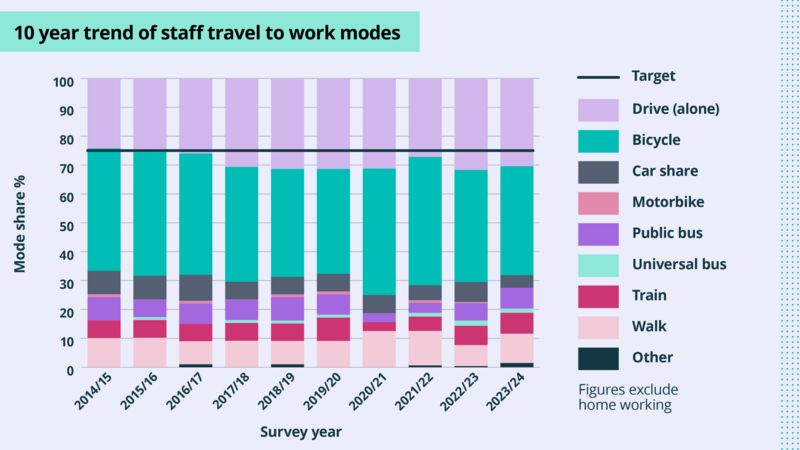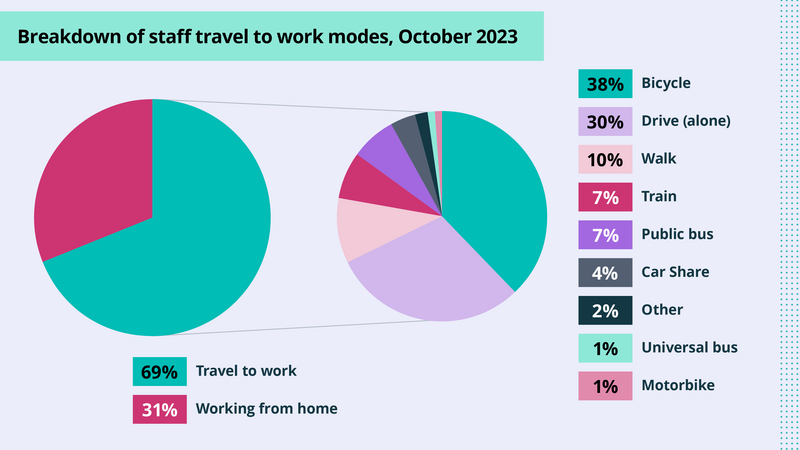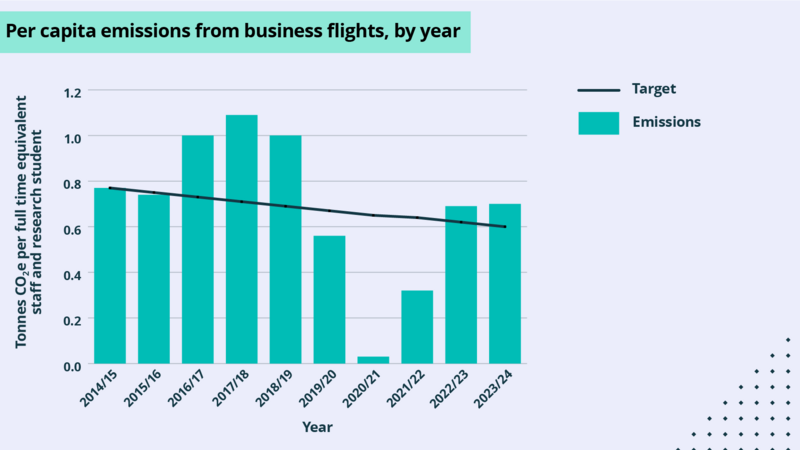Travel and transport progress
The 10 year trend of staff travel modes
The following graph shows the 10-year trend in staff travel modes compared to our 75% sustainable travel target, excluding those working from home.

Summary
- The Transport Strategy target for 75% of staff to be regularly commuting by sustainable modes was only achieved in 2014.
- The target was very close to being achieved in 2013, 2015, 2016 and most recently in 2021.
- The target was relatively close to being achieved in all of the other years.
- The worst year was 2022 at 68%, with an improvement in 2023 to 70%.
A breakdown of staff travel modes for October 2023
The following graph shows a breakdown of staff travel modes in October 2023. The pie chart on the left shows the percentages of staff travelling to work and working from home. Of the staff traveling to work, the pie chart on the right shows a breakdown of their travel modes.

Summary
- A significant percentage of staff are working from home at 31%.
- Of those that travel to work, the most common travel mode is bicycle at 38%, followed by driving alone (30%) and walking (10%).
- Of those that travel to work, the Transport Strategy target of 75% of staff regularly commuting by sustainable modes has not been achieved. The most recent figure in October 2023 is 70%.
Per capita emissions from business flights, by year
The following graph shows the University's target and actual total business flight emissions in tonnes per full-time equivalent (FTE) staff and research student, by year.

Summary
- Total business flight emissions per FTE staff and research student has decreased by 9% in 2023-24 against 2014-15 levels. However, the University is not on track to meet its target to reduce per capita emissions from business flights.
- Per capita emissions from business flights peaked in 2017-18 and then dropped substantially as a result of the COVID-19 pandemic.
- The return to travel after the pandemic has resulted in emissions exceeding the target for 2023-24 by nearly 17%.
Additional and historic data
For our commitments and approach, please visit the Travel and transport page.
All previous Annual Environmental Sustainability Reports are available up to 2022-23. Our reporting approach changed from the 2023-24 year onwards to Our progress pages to make information more transparent and accessible. Qualitative progress against our commitments can be found within our Case studies. These will both be updated on an ongoing basis as new data and material becomes available.
You can also read about the University's work on environmental sustainability in its Annual Report and Financial Statements. Further operational environmental sustainability information is available on request using sustainability@admin.cam.ac.uk
